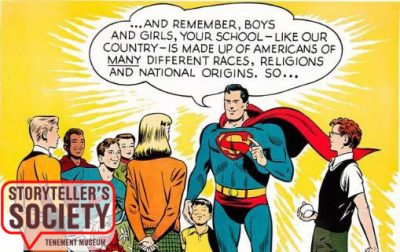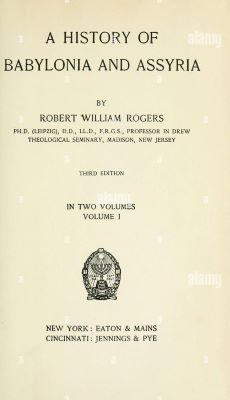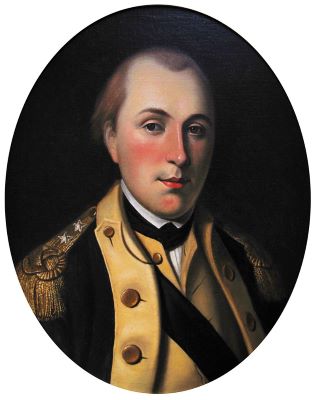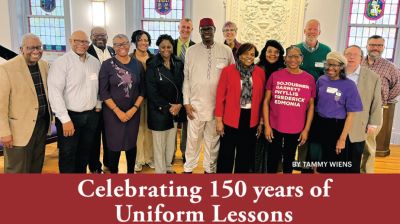
Now that this year’s July 4th celebration is over, it is time to start looking ahead to the big one, July 4, 2026. That date marks the 250th anniversary of the declaring of the United States of America. It also is the bicentennial of the deaths of John Adams and Thomas Jefferson, the second and third presidents. They had been part of a committee to draft the Declaration and became extensive pen-pals following their presidencies. At the time of their deaths on the 50th anniversary of the birth of the country there was only one possible explanation for it: divine providence.
The Founding Fathers regarded their creation as an experiment. They knew they were undertaking something never before undertaken on such a scale. They knew it might fail. To have reached the milestone of 50 years following a second war with Great Britain when the White House had been burned was something to celebrate. The idea that their handiwork would still be around 250 years after its creation and as a global superpower would have been considered science fiction fantasy had they known those terms.
But here we are approaching the semiquincentennial, not a word I had ever used before. I learned that word from the legislation passed on July 22, 2016, ‘‘United States Semiquincentennial Commission Act of 2016.”
SEC. 2. FINDINGS; PURPOSE.
(a) FINDINGS.—Congress finds that July 4, 2026, the 250th anniversary of the founding of the United States, as marked by the Declaration of Independence in 1776, and the historic events
preceding that anniversary—
(1) are of major significance in the development of the national heritage of the United States of individual liberty, representative government, and the attainment of equal and inalienable rights; and
(2) have had a profound influence throughout the world.
(b) PURPOSE.—The purpose of this Act is to establish a Commission to provide for the observance and commemoration of the 250th anniversary of the founding of the United States and related events through local, State, national, and international activities planned, encouraged, developed, and coordinated by a national commission representative of appropriate public and private authorities and organizations.
One wonders about the American Revolution events subsequent to July 4, 1776, a subject to which I shall return. Still, the breadth of the mandate is breathtaking. The phrase “planned, encourage, developed, and coordinated” raises multiple questions of how this national commission will operate on the local, state, and international level.
The commission will consist of members of both Houses, private citizens appointed by both Houses, and a chair selected by the President.
SEC. 4. ESTABLISHMENT OF COMMISSION.
(a) IN GENERAL.—There is established a commission, to be known as the ‘‘United States Semiquincentennial Commission’’, to plan, encourage, develop, and coordinate the commemoration of the history of the United States leading up to the 250th anniversary of the founding of the United States.
Once again notice the drop dead date of July 4, 2026, as if nothing happened in the American Revolution afterwards. It is as if what is important are the events leading up to Philadelphia and then the story of the American Revolution stops. As it turns out, the legislative focus on Philadelphia is not by chance.
(d) MEETINGS.—All meetings of the Commission shall be convened at Independence Hall in Philadelphia, Pennsylvania, to honor the historical significance of the building as the site of deliberations and adoption of both the United States Declaration of Independence and Constitution.
This clause stresses that Philadelphia is to be the one and only location for the commission. No commission meetings are to be held in any other locations that were important to the American Revolution including for events prior to July 4, 1776 or subsequent to that date.
SEC. 5. DUTIES.
(a) IN GENERAL.—The Commission shall—
(1) prepare an overall program for commemorating the 250th anniversary of the founding of the United States and the historic events preceding that anniversary; and Pennsylvania.
(2) plan, encourage, develop, and coordinate observances and activities commemorating the historic events that preceded, and are associated with, the United States Semiquincentennial.
(b) REQUIREMENTS.—
(1) IN GENERAL.—In preparing plans and an overall program, the Commission—
(A) shall give due consideration to any related plans and programs developed by State, local, and private groups; and
(B) may designate special committees with representatives from groups described in subparagraph (A) to plan, develop, and coordinate specific activities.
(2) EMPHASIS.—The Commission shall—
(A) emphasize the planning of events in locations of historical significance to the United States, especially in those locations that witnessed the assertion of American liberty, such as—
(i) the 13 colonies; and
(ii) leading cities, including Boston, Charleston, New York City, and Philadelphia;
The general duties suggest an awareness that significant events occurred prior to July 4, 1776, that they were not in Philadelphia, and that the national commission is to work in some way with others who are commemorating those events. Specifically it recognizes that state, local, and private groups may develop plans and programs on their own initiative. Furthermore, the national commission may create committees to include representatives of these organizations. Specifically, the legislation calls attention to the 13 colonies and the big four cities besides Philadelphia. One would think therefore that one such committee would consist of the 13 state semiquincentennial commissions should the 13 states create their own commissions. Could such committees meet outside of Philadelphia or are they bound by the same restrictions as the national commission? Is there any role for the other 37 states plus various territories that are part of the United States? Are they part of the celebration of the American Revolution too?
(B) give special emphasis to—
(i) the role of persons and locations with significant impact on the history of the United States during the 250-year period beginning on the date of execution of the Declaration of Independence; and
(ii) the ideas associated with that history, which have been so important in the development of the United States, in world affairs, and in the quest for freedom of all mankind.
Needlesstosay, this special emphasis is extremely broad. First, the American Revolution from July 4, 1776 to November 25, 1783, when the British evacuated New York City, a local holiday until World War I now revived by the Lower Manhattan Historical Association, is ignored. Second, the legislation now opens the emphasis to people, places, and ideas who were significant to the history of the United States, its place in world history, and the global quest for freedom. Somehow this national commission is charged with identifying and blessing all those over a 250-year period. In New York where I live that practically means grab the text books for 7th and 8th grade social studies American history classes and go to the index….and then fill in the gaps for everything and everyone and everywhere overlooked in the official curriculum.
(c) REPORT SUBMITTED TO THE PRESIDENT.—
(1) IN GENERAL.—Not later than 2 years after the date of enactment of this Act, the Commission shall submit to the President a comprehensive report that includes the specific recommendations of the Commission for the commemoration of the 250th anniversary and related events.
This report was due on July 22, 2018. The commission had not even met by then (see below). One suspects the July 22, 2019, date will come and go without such a report having been prepared. As for the contents of these specific recommendations:
(2) RECOMMENDED ACTIVITIES.—The report may include recommended
activities such as—
(A) the production, publication, and distribution of books, pamphlets, films, and other educational materials focusing on the history, culture, and political thought of the period of the American Revolution;
(B) bibliographical and documentary projects and publications;
(C) conferences, convocations, lectures, seminars, and other programs, especially those located in the 13 colonies, including the major cities and buildings of national historical
significance of the 13 colonies;
(D) the development of libraries, museums, historic sites, and exhibits, including mobile exhibits;
(E) ceremonies and celebrations commemorating specific events, such as—
(i) the signing of the Declaration of Independence;
(ii) programs and activities focusing on the national and international significance of the United States Semiquincentennial; and
(iii) the implications of the Semiquincentennial for present and future generations; and
(F) encouraging Federal agencies to integrate the celebration of the Semiquincentennial into the regular activities and execution of the purpose of the agencies through such activities as the issuance of coins, medals, certificates of recognition, stamps, and the naming of vessels.
The report then is to include activities beyond Philadelphia. Even if state commissions had been created in the 13 former colonies, this report would be a major undertaking in itself.
There are a lot of moving parts to this endeavor.
SEC. 6. COORDINATION.
(a) IN GENERAL.—In carrying out this Act, the Commission shall consult and cooperate with, and seek advice and assistance from, appropriate Federal agencies, State and local public bodies, learned societies, and historical, patriotic, philanthropic, civic, professional, and related organizations.
(b) RESPONSIBILITY OF OTHER FEDERAL AGENCIES.—
(1) IN GENERAL.—Federal agencies shall cooperate with the Commission in planning, encouraging, developing, and coordinating appropriate commemorative activities.
A great deal of communication will be required to make this project work.
SEC. 7. POWERS.
(a) HEARINGS.—The Commission may hold such hearings, meet and act at such times and places, take such testimony, and receive such evidence as the Commission considers advisable to carry out this Act.
Presumably they all are to be held in Philadelphia. One hopes that everyone participating in such hearings is in driving distance or Amtrak-northeast-corridor distance from Philadelphia.
There will be a time capsule.
(1) TIME CAPSULE.—A representative portion of all books, manuscripts, miscellaneous printed matter, memorabilia, relics, and other materials relating to the United States Semiquincentennial shall be deposited in a time capsule—
(A) to be buried in Independence Mall, Philadelphia, on July 4, 2026; and
(B) to be unearthed on the occasion of the 500th anniversary of the United States of America on July 4, 2276.
Unfortunately the Federal Government at present cannot undertake any scientific studies to determine if that location will be underwater or not in another 250 years. (By coincidence see “A Rising Threat to History: Climate Change Is Forcing Preservationists to Get Creative in Rhode Island,” NYT July 9, 2019, print edition.)
There will be no public funding for the commission.
SEC. 9. EXPENDITURES OF COMMISSION.
(a) IN GENERAL.—All expenditures of the Commission shall be made solely from donated funds.
Some lucky non-profit will be selected to actually do the work.
(b) ADMINISTRATIVE SECRETARIAT.—The Secretary of the Interior shall, through a competitive process, seek to enter into an arrangement with a nonprofit organization, the mission of which is consistent with the purpose of this Act. Under such arrangement, such nonprofit organization shall—
(1) serve as the secretariat of the Commission, including by serving as the point of contact under section 5(e);
(2) house the administrative offices of the Commission;
(3) assume responsibility for funds of the Commission; and
(4) provide to the Commission financial and administrative services, including services related to budgeting, accounting, financial reporting, personnel, and procurement.
And then everything will end.
SEC. 10. TERMINATION OF COMMISSION.
The Commission shall terminate on December 31, 2027.
As one might expect, Philadelphia was a driving force in the adoption of this legislation.
In 2014, the Philadelphia City Council ordered a public hearing of the Committee on Parks, Recreation and Cultural Affairs to investigate “the impact and feasibility of Philadelphia” hosting the United States Semiquincentennial in 2026, among other events.[5] The following year a non-profit organization, USA250, was established in Philadelphia to lobby for federal government support of the United States semiquincentennial and establish Philadelphia as the host city for events surrounding the semiquincentennial observances.[6] (Wikipedia)
The American Battlefield Trust has been named the commission’s non-profit partner to serve as Administrative Secretariat, tasked with preparing reports for Congress and helping raise funds for the anniversary observances.
Daniel DiLella, CEO and President of Equus, a leading private equity real estate fund, was appointed Chairperson of the Semiquincentennial Commission in April 2018. In May 2018, DiLella named Frank Giordano as the commission’s executive director. Giordano, who heads Atlantic Trailer Leasing in Philadelphia, led the rejuvenation of two formerly struggling Philadelphia institutions, the Philly Pops Orchestra and Union League club. (Wikipedia)
In the meantime, some activity has occurred at the state level.
Pennsylvania became the first state to formally begin planning for the anniversary in June 2018 when the commonwealth established the Pennsylvania Semiquincentennial Commission. Four months later, on October 17, Gov. Tom Wolf named Fresh Grocer supermarket magnate and philanthropist Patrick Burns to chair the state commission. (Wikipedia)
In 2018 and 2019, I attended the Massachusetts History Alliance conferences held at Holy Cross. While there I met Jonathan Lane, Massachusetts Historical Society. His job is the 250th in the state. Note he works for a non-profit and there is no state commission there. The Massachusetts dilemma is it cannot wait for 2026. The Boston Massacre (1770), the Boston Tea Party (1773), Lexington and Concord (1775), and Bunker Hill (1775) to name some prominent events all occurred prior to July 4, 1776. How will the national commission assist in the planning and development of these commemorations starting next year? What will the state of Massachusetts do?
In August 2018, the State of New Jersey launched its effort when Gov. Phil Murphy signed a measure that called on the New Jersey Historical Commission to create a program focused on the 250th anniversary of the independence of the United States as well as the creation of the state’s first Constitution. The law appropriated $500,000 to fund the historical commission’s planning for the 250th anniversary festivities. (Wikipedia)
Jonathan did tell me he attended a meeting in Philadelphia with about 30 people. According to a press release from American Battlefield Trust there was a meeting with the 33 members of the commission on November 16, 2018, in Philadelphia. I did not notice any additional meetings or events on its website about the commission.
In New York where I live, there is no state commission. Devin Lander, the New York State historian has held two meetings about the 250th. The first was in Saratoga, location of the battle in 1777 that has been called one of the critical battles of the 18th century. But it occurred after July 4, 1776. So did the iconic toppling of the statue of George III in lower Manhattan (July 9, 1776), the hanging of Nathan Hale (September 22, 1776), the Sullivan Campaign (1779), Benedict Arnold (1780), the Newburg Conspiracy (1783), Evacuation Day (November 25, 1783). The second meeting he called was hosted by the Institute for Thomas Paine Studies at Iona College named after a significant figure in the American Revolution. Additional meetings are expected.
In Westchester County, New York, where I live, the RW250 was formed in 2018. It is applying for 501(c)3 status. It has been holding lectures throughout the county about the American Revolution in the county. To the best of my knowledge, it is the only such organization in the state.
What does all this mean?
1. There will be a big event in Philadelphia on July 4, 2026. Of course, the city already celebrates July so it is not comparable to the Jamestown Quadricentennial which was a one-time event.
2. There will be some international events. Perhaps in London on the same day. Perhaps in Canada which we invaded. Perhaps in Paris which came to our aid after the Battle of Saratoga in 1777. Perhaps in China where the Statue of Liberty is a revered figure or maybe in Hong Kong.
3. What about multi-state events? How about the capture of Fort Ticonderoga in New York in 1775 by Ethan Allen and Benedict Arnold with the Connecticut and Massachusetts militias followed by the transport of the fort’s canons under Henry Knox to Boston? Or the Rochambeau Trail from Rhode Island to Virginia which already operates as a below-the-radar National Park Service Project?
4. What about multi-country events? How about the invasion of Canada, the evacuation to Canada, the evacuation to the Caribbean?
5. What about the rest of continental United States beyond the 13 colonies? What about the Spanish colonies? What about the Indian Nations?
At this point it is too early to know as the national commission is in its infancy even though the report was due last year with specific recommendations.
But there are larger issues of concern beyond simply commemorating events, places, and ideas of 250 years ago. How do we connect people today to them? How do we get all Americans to recognize July 4 as the birth of their country regardless of when they or their family first arrived here? The musical “Hamilton” shows that it can be done. To paraphrase, it famously asks of its audience “who will tell our story?” What America needs is not fireworks, tanks, and big extravaganzas. What we need are the stories of our birth as a country that can reknit the social fabric, that can bind us together from “California to the New York island,” and that can make us We the People. That is not the mandate of the United States Semiquincentennial Commission for the American Revolution. Where is our Lincoln to remind us of what happened twelve score and ten years ago?





